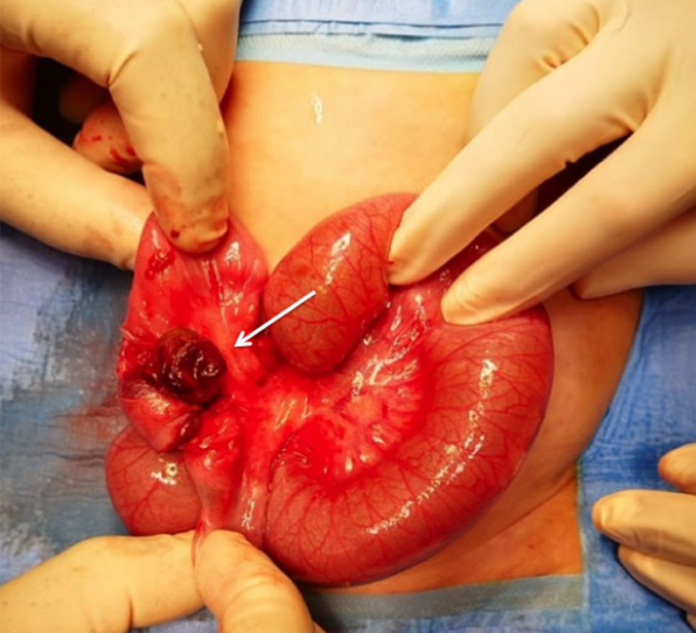
Case study: Neonatal intussusception Secondary to Meckel’s Diverticulum
Neonatal intussusception is a common cause of intestinal obstruction in children below 2 years of age. This article describes the first case of neonatal intussusception secondary to Meckel’s diverticulum in a neurologically impaired neonate.
A female infant, 22 days of age, presented to the Emergency Department with suspected short bowel syndrome, which is a common cause of intestinal failure in neonates. The patient was unresponsive and dyspneic on presentation, therefore, was immediately intubated and transferred to the paediatric care unit. Doctors advised a total-body ultrasound with more focus on the brain, lungs and abdomen. The ultrasound ruled out injuries to the parenchymatous organs. However, revealed an enlarged and inhomogeneous adrenal gland.
The patient was referred for a rectal stimulation, 8 days after hospitalisation because of persistent constipation for 4 days. The constipation was considered to be caused because of neurological impairment and intravenous benzodiazepine. However, while the patient was undergoing the procedure, a sudden isolated episode of rectal bleeding occurred. There was no abdominal distension, nor did the patient’s general condition worsen. Doctors advised an abdominal X-ray which did not show any signs of pneumoperitoneum. Whereas ultrasonography showed a “doughnut sign”, “the bone scan pattern whereby there is increased uptake peripherally with a photopenic centre”
For further evaluation, doctors performed a barium contrast enema of the right inferior abdominal contrast which suggested an ileocecal intussusception
An abdominal CT scan was also performed which confirmed the diagnosis of intussusception. The patient was referred for an exploratory laparotomy. Intraoperative findings showed ileocecal intussusception with Meckel’s diverticulum acting as the lead point. The intussusception was reduced manually with resection of the Meckel diverticulum to preserve the ileocecal valve.
Since intussusception is rare in neonates with neurological impairment, the diagnosis can often be missed, compromising the condition of the baby. Similarly, because of the high incidence of lead point, it is recommended to use non-operative treatment only for selected neonatal cases.
Source: American Journal of Case Reports



